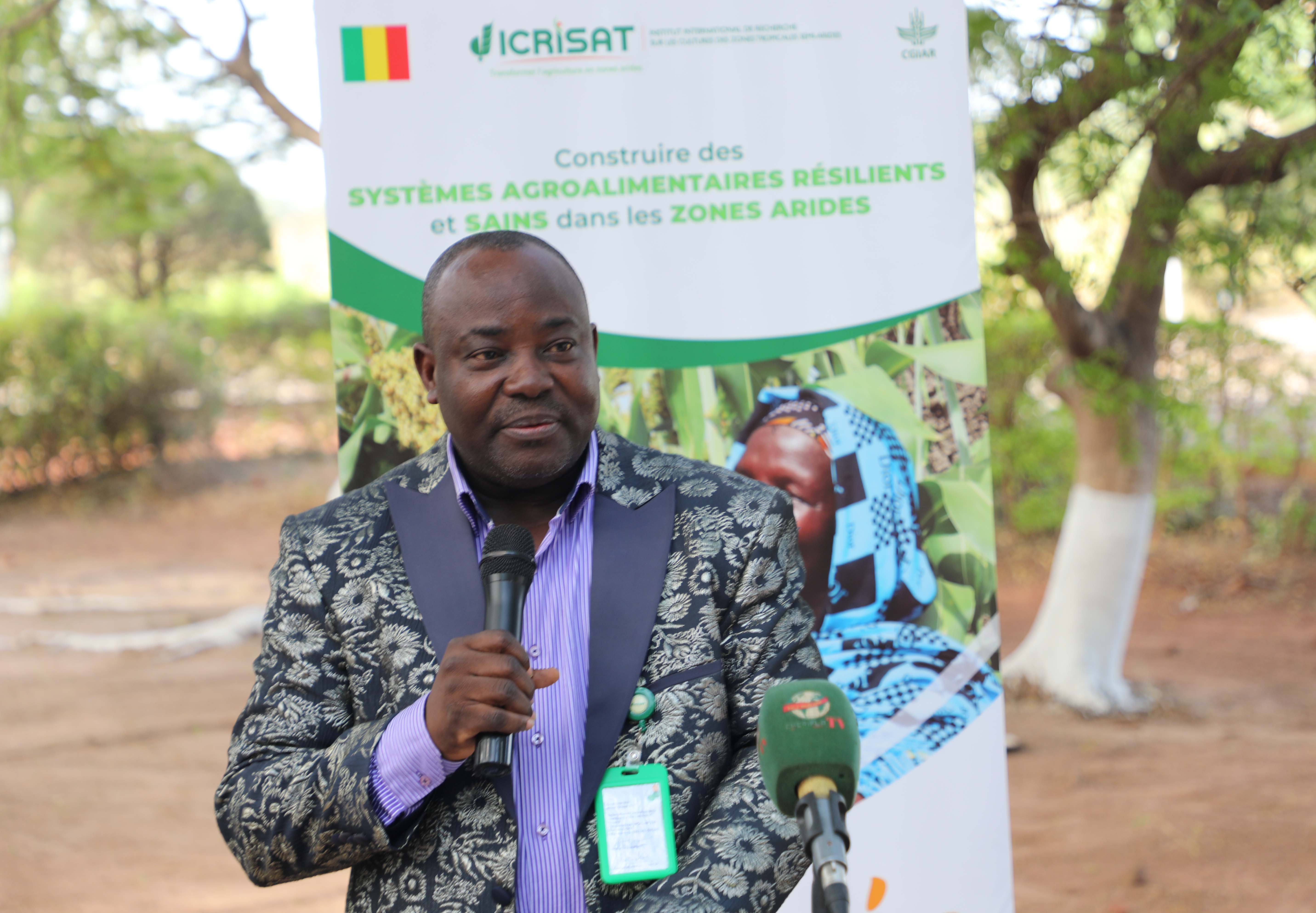November 25, 2024

Women farmers participate in ICRISAT's Open Field Day in Mali, November 2024. Photo: ICRISAT.
The International Crops Research Institute for the Semi-Arid Tropics (ICRISAT) successfully hosted its annual Open Field Day on 14 November 2024 at the Samanko research station in Mali. This flagship event convened key stakeholders, including farmers, seed companies, and development partners, to showcase the latest advancements in agricultural technologies designed to enhance crop productivity and resilience.
This year, the primary goal of the Open Field Day was to introduce and promote technologies designed to address production challenges and improve the yields of key crops such as sorghum, millet, and groundnut. Through interactive discussions and field demonstrations, attendees learned about the potential of high-yield, climate-resilient crop varieties and sustainable farming practices.
The gathering was presided over by Dr Kalifa Traoré, Director-General of the Rural Economy Institute (IER), who represented Mali’s Minister of Agriculture, HE Lassine Dembele. Dr Ayoni Ogunbayo, ICRISAT’s Country Representative for Mali, also played a prominent role in the event, which saw participation from local officials, international organizations, and NGOs.
 Dr Ayoni Ogunbayo, Country Representative, ICRISAT - Mali, delivers remarks.
Dr Ayoni Ogunbayo, Country Representative, ICRISAT - Mali, delivers remarks.
Innovations for Climate Resilience
With climate change posing a growing threat to agriculture in Mali, ICRISAT’s focus on developing drought-tolerant and pest-resistant varieties is crucial to ensuring food security and farmer livelihoods.
Dr Ogunbayo emphasized agriculture’s significant role in Mali’s economy, noting that the sector employs 70% of the workforce and contributes approximately 42% to the nation’s GDP. However, he also acknowledged the growing challenges facing the agricultural sector, including pest outbreaks, land degradation, and the impacts of climate change.
“To overcome the challenges facing the agricultural sector, continuous innovation is needed. We must continue developing new crop varieties but also enhance farmer knowledge and awareness of sustainable practices,” Dr Ogunbayo stated.
Dr Ogunbayo further highlighted the potential of improved seed varieties to significantly increase yields when paired with sustainable farming practices. Adding that ICRISAT and its partners have developed several high-yield, stress-tolerant varieties tailored to local conditions, which are crucial in securing livelihoods and strengthening food security across Sub-Saharan Africa.
 Ms Marthe Dembele, Research Technician, ICRISAT, explains the breeding process to visitors in a sorghum field
Ms Marthe Dembele, Research Technician, ICRISAT, explains the breeding process to visitors in a sorghum field
Strengthening Partnerships
Dr Kalifa Traoré underscored the importance of fostering partnerships along the entire agricultural value chain and praised ICRISAT’s collaboration with IER in adapting agricultural practices to Mali’s challenging arid environment through innovative research and practical solutions.
“Through collaboration, we can find practical solutions to the challenges our farmers face and develop innovations that make Mali’s agriculture stronger and more adaptable to climate change,” Dr Traoré said.
The event featured field visits to demonstration plots showcasing millet, sorghum, and groundnut, alongside tours of seed laboratories and Striga control experiments. Participants also had the opportunity to explore innovative processed food products developed through the Smart Food initiative, which highlights the nutrient-rich nature of millet, sorghum, and groundnut as key to healthier, more sustainable diets.
 Dr Kalifa Traore, Director General, IER (right) closely observes Smart Food products.
Dr Kalifa Traore, Director General, IER (right) closely observes Smart Food products.
 Visitors to the groundnut demonstration space
Visitors to the groundnut demonstration space